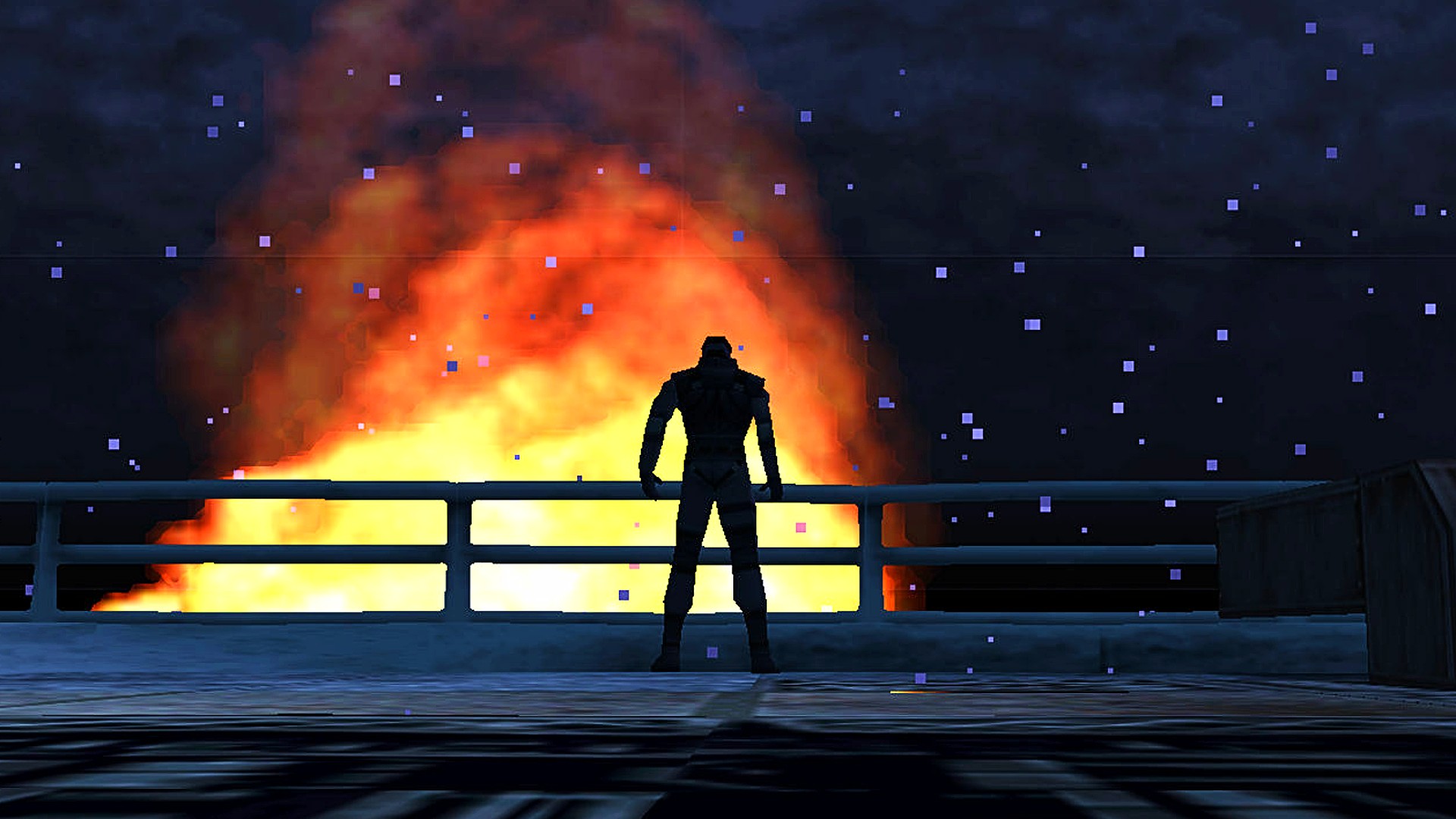
The reveal of Metal Gear Solid at E3 1997 had a big impact, particularly on one Sony developer who was busy making his own espionage-themed action game at the exact same time.
Speaking to Retro Gamer, Richard Ham, design lead on Syphon Filter at developer Eidetic (now known as Days Gone developer Sony Bend) explained how Metal Gear Solid's trailer brought the convention to a standstill. That's partly because Konami played it every single hour, on a massive screen that dominated the convention hall.
"The first time the world saw this trailer, it was not just on some little TVs at the Konami booth. This was on a gigantic jumbotron screen that towered over everything. As I recall, every hour they would play that trailer, and for the entire convention this would become like appointment viewing - there'd be a huge crowd and so everyone would come and sit and watch."
According to Ham, all that attention was well-deserved. "It was so next-level," he says, "so many interesting camera angles for everything. It felt so cinematic." For Ham and the team at Eidetic, that wasn't great news, since "cinematic gameplay was something I was trying very, very hard to achieve with Syphon Filter, with camera locks and being a fan of John Woo and action cinema."
That cinematic style wasn't the only similarity between Syphon Filter and Metal Gear Solid. Both games are semi-political thrillers with a blend of stealth and action gameplay. Given their early console launch, there's also a distinct visual similarity to get over, especially once you factor in protagonist Gabriel Logan's fetching, Snake-esque grey jumpsuit.
All those similarities were particularly haunting for Ham, who said that even though Syphon Filter eventually offered a "radically different kind of experience," he "was despairing" in the wake of that E3 trailer, because "it looked like [Konami] were doing everything that we were trying to do, better."
Eventually, it didn't really matter. Syphon Filter was critically and commercially successful, going on to spawn five sequels in the eight years following its release. It didn't become the kind of global phenomenon that Metal Gear Solid proved to be, admittedly, but very few games do, so perhaps an existence lived in the shadow of greatness is perfectly respectable.







